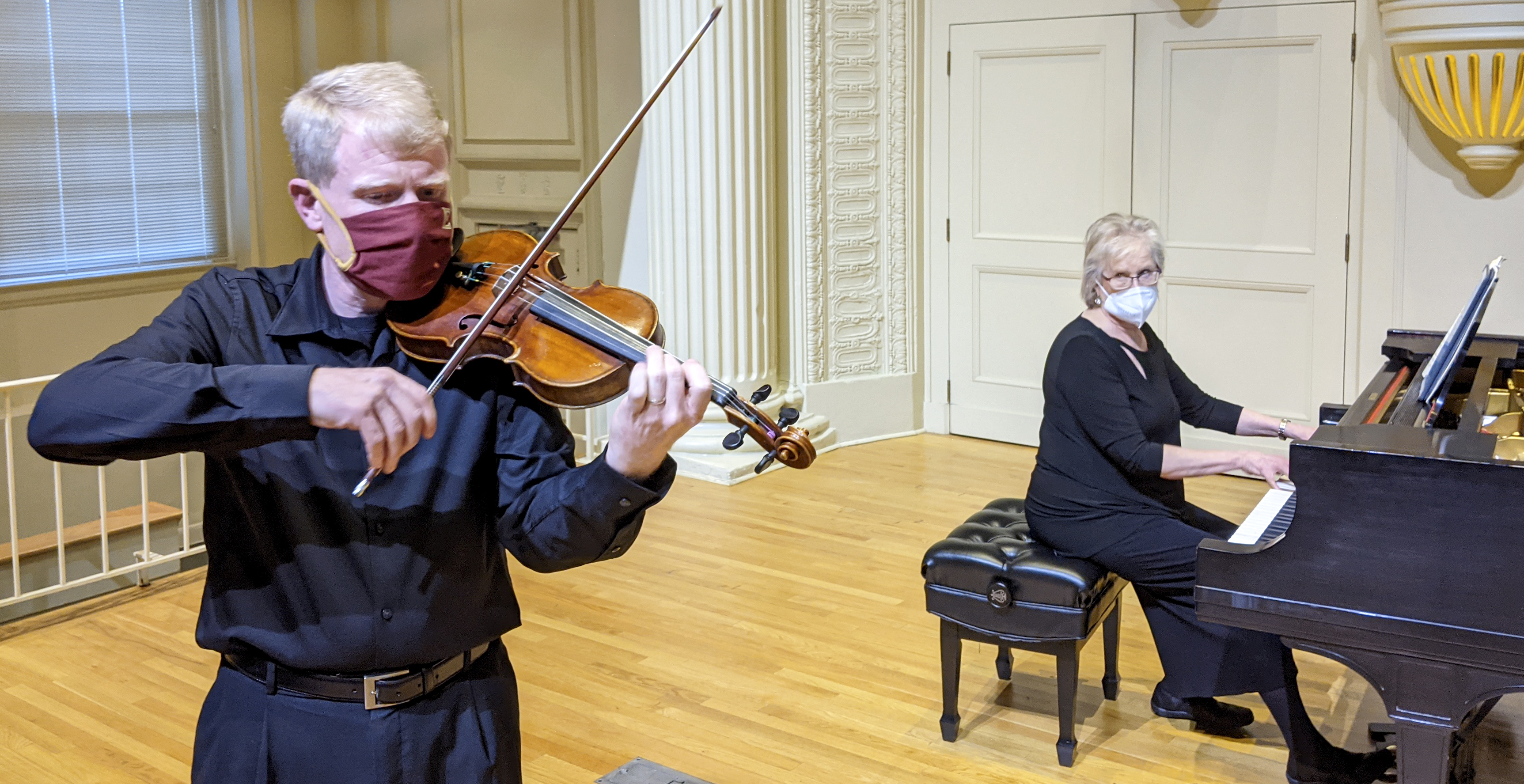The Phoenix Piano Trio's concert and a lecture by Beethoven scholar David B. Levy of Wake Forest University will begin streaming on the music department's Facebook page at 4 p.m. on Sunday.
Through a concert performance and lecture, Elon’s Department of Music will wish Ludvig van Beethoven a belated 250th birthday this weekend.
A performance of three sonatas by the Phoenix Piano Trio and lecture by renowned Beethoven scholar David Levy of Wake Forest University will begin streaming on the department’s Facebook page beginning at 4 p.m. Sunday, Feb. 28.
“Beethoven — his music and his message — epitomizes the values of the liberal arts and sciences,” said Professor of Music Vicky Fischer Faw, who organized the event. “His passionate musical voice speaks to the essence of humanity today as it did in his own time. His art was a response to universal events: the French Revolution whose values he fervently shared, the Napoleonic wars, the blooming of Romantic art and music, as well as personal tragedy. The power of his musical voice transcends specific events, however, and directs us to a higher universal joy.”

Beethoven was born in 1770 in Bonn, Germany, and his musical talent quickly distinguished him and elevated his social status. He was a proponent of social and civic equality. Beethoven wrote nine symphonies, 32 piano sonatas, five piano concertos and dozens more pieces for strings, voice, and ensembles. He lost his hearing in the early 1800s but continued to compose music until his death in 1827.
Musicians around the globe celebrated the composer’s 250th birthday last year. The music department originally planned to contribute to those celebrations with a weeklong series of events sponsored by a Fund for Excellence Grant from Elon College, the College of Arts and Sciences. The celebration was postponed and condensed due to the pandemic and recorded for streaming this winter.
Levy, a musicologist whose forthcoming book “Beethoven: The Nine Symphonies” will be published by Yale University Press, was invited to offer context as a “leading world authority on Beethoven,” Fischer Faw said. His lecture, “From Amateurism to Professionalism: Beethoven Redefines a Repertory,” follows his career from its origins as chamber music to challenging works meant for professional musicians and concert halls.
“It’s a special opportunity to have Dr. Levy participate with us,” she said. “He really illuminates and provides such rich context for the music.”

The Phoenix Piano Trio — pianist Fischer Faw; violinist Dan Skidmore, adjunct assistant professor; and cellist Ryan Graebert, instructor of cello at Radford and High Point universities — performed pieces from the composer’s early, middle and later works in a concert recorded Feb. 17 in Whitley Auditorium.
“Beethoven’s work was so brilliant and original, but it always transcends that craftsmanship to provide a vehicle for deep personal expression,” Fischer Faw said. “In the process of realizing great art like this, there’s a sensation and feeling of connectedness and kinship with its creator, and the awesome responsibility to their work. When you get to play in an ensemble and share that, it elevates the whole experience of making and sharing music.”
The performance is Fischer Faw’s last as a full-time faculty member. She retires this spring after 31 years at Elon but will continue performing and teaching part time. Performance is a vital part of the teacher-student relationship within the music department, she said, and she is grateful to the College’s Fund for Excellence, for making this performance possible in a difficult time.

“Everything we do comes back to teaching,” she said. “We have rich conversations with students, but seeing faculty perform music, seeing that no one is perfect, and that we’re all on the same road together, it creates an inclusiveness for the teacher and student, for the musician and the listener, and for the performers with each other.
“This is also a reminder of how wonderful live music is. It’s imperfect, but perfection is overrated. It’s about sharing something important and wonderful. Especially in the pandemic, Beethoven’s music, his voice, speaks as a relevantly now as it ever has.”



